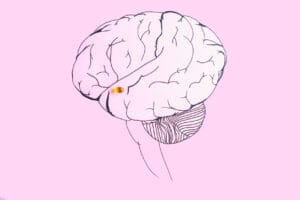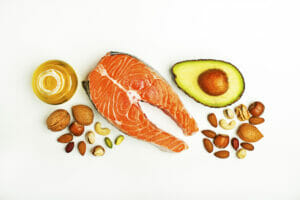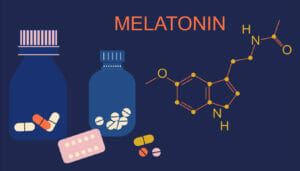These are the Best Brain Supplements Available Today

First, a note on how and if brain supplements cross the blood-brain barrier.
Table of Contents
Blood-brain Barrier and Brain Supplements
The blood-brain barrier is a semi permeable layer of cells. It is meant to keep large molecules that circulate in the blood out of the brain as well as provide a constant, homeostatic environment for the brain, without disruptions from various hormones that circulate in the blood. Lipid soluble molecules easily cross the barrier, as do certain molecules that mimic naturally made molecules. For example, caffeine is structurally similar to adenosine and is fat soluble so it easily crosses the blood brain barrier.
In general, most of the nutrients we consume are synthesised by the body so they can be used by the brain but fat soluble nutrients will cross the blood brain barrier while water soluble ones will not.
Supplements for Overall Brain Health
B vitamins
While B vitamins are water soluble, meaning they don’t cross the blood brain barrier, that doesn’t mean they aren’t essential brain supplements. Folate in particular is necessary for brain and central nervous system health, with deficiencies causing an array of problems, especially during fetal development.
Vitamins B6 and B12 may reduce cognitive decline in the elderly. A small, peer-reviewed study found that in people with vitamin B6 and B12 deficiencies, supplementation “reduced brain atrophy” by at least fifty percent over a two year period in individuals with mild cognitive impairment. (1) It’s important to note that while elderly people are commonly deficient in these two vitamins, supplementation in people with adequate levels did not show any significant benefit.
Omega-3’s

While there has not been a definitive link established between Omega-3 supplements and the prevention of debilitating diseases like Alzheimer’s, in cognitively healthy patients, Omega 3’s may have a neuroprotective effect. In a 2 year long study investigating the link between heart disease risk and Omega-3 supplements, researchers noticed that the participants receiving Omega-3 supplements also fared better on cognition tests than those receiving a placebo. (2)
DHA (one of the long chain fatty acids in Omega-3) may improve working memory as well as specific event recall in older people. A review of the evidence for linking DHA supplements with better memory concluded “DHA, alone or combined with EPA, contributes to improved memory function in older adults with mild memory complaints.” (3)
Antioxidants as Brain Supplements
Vitamin E
An important antioxidant, especially in the brain, vitamin E has been studied for its role in aging and ageing related cognitive decline with varying results. A review of four studies related to vitamin E and cognitive decline found “favourable effects that were not statistically significant” with α-tocopherol (Vitamin E) supplementation. The same review concluded “Most of the epidemiological studies analyzed in this work clearly associate high levels of vitamin E with improved cognitive performance” and “the relative safety of vitamin E combined with the low cost and the absence of valid alternative treatments for AD (Alzheimer’s disease), suggest vitamin E as a nutritional compound to promote healthy brain ageing and to delay AD-related functional decline.” (4)
Carotenoids
Lutein, a carotenoid commonly associated with eye health, is the dominant carotenoid in the brain and is commonly called “the workhorse molecule”. It is a known antioxidant and potent anti-inflammatory agent. Zeaxanthin, another carotenoid, is thought to work in conjunction with lutein in the brain. (5)
Glutathione
Glutathione (GSH) is a powerful brain antioxidant—so much so that a reduction in glutathione levels have been correlated with mild cognitive impairment and even Alzheimer’s disease. Researchers are able to determine mild cognitive impairment looking for glutathione markers in testing. (6)
Gaba Supplements for the Brain
Gamma Aminobutyric Acid (GABA) is an amino acid that occurs naturally in the body and functions as a neurotransmitter in the brain. While there is conflicting evidence that GABA crosses the blood brain barrier, researchers have noted that it is possible it crosses through the enteric nervous system (in the stomach) and works through the gut-brain connection. (7)
With considerable anecdotal evidence that GABA reduces anxiety and stress, a Japanese study team set out to find scientific proof. The researchers found that in a 50mg dose, GABA reduced mental and physical fatigue and improved problem solving ability when given tasks. (8) Another study found chocolate containing GABA did have a physiological stress reducing effect, as measured from salivary markers of stress. (9)
Best Brain Supplement for Sleep

A Note on Ginseng and Ginkgo Biloba
While millions of people use ginseng and ginkgo biloba as brain supplements to improve memory and focus, there are few high quality studies providing any evidence that they do.
Even though there is no magic pill for a better brain, nutrients are vital to the function of all bodily systems. Also, as with many things related to best health practices, getting enough sleep and moving your body are two of the easiest ways to boost your brain power and create a healthy environment for your brain to function at its best.
Thank you for taking the time to read These are the Best Brain Supplements Available Today
Please note: All information presented to you in this website is intended for your general knowledge only and is not a substitute for medical advice or treatment for specific medical conditions. We cannot, and will not give you medical advice. We strongly recommend you consult your physician for any and all specific health issues. If you have any questions or contributions, please contact us via email or phone-call. We are constantly looking for new information to promote wellness – and hearing from you would make our day.
Live Vibrantly!
References
3) Docosahexaenoic acid and adult memory: a systematic review and meta-analysis
4) Effects of Vitamin E on Cognitive Performance during Ageing and in Alzheimer’s Disease
5) Dietary Carotenoids and the Nervous System
6) Brain glutathione levels—a novel biomarker for mild cognitive impairment and Alzheimer’s disease
7) Neurotransmitters as food supplements: the effects of GABA on brain and behavior
8) https://www.jstage.jst.go.jp/article/jnsv/57/1/57_1_9/_article


